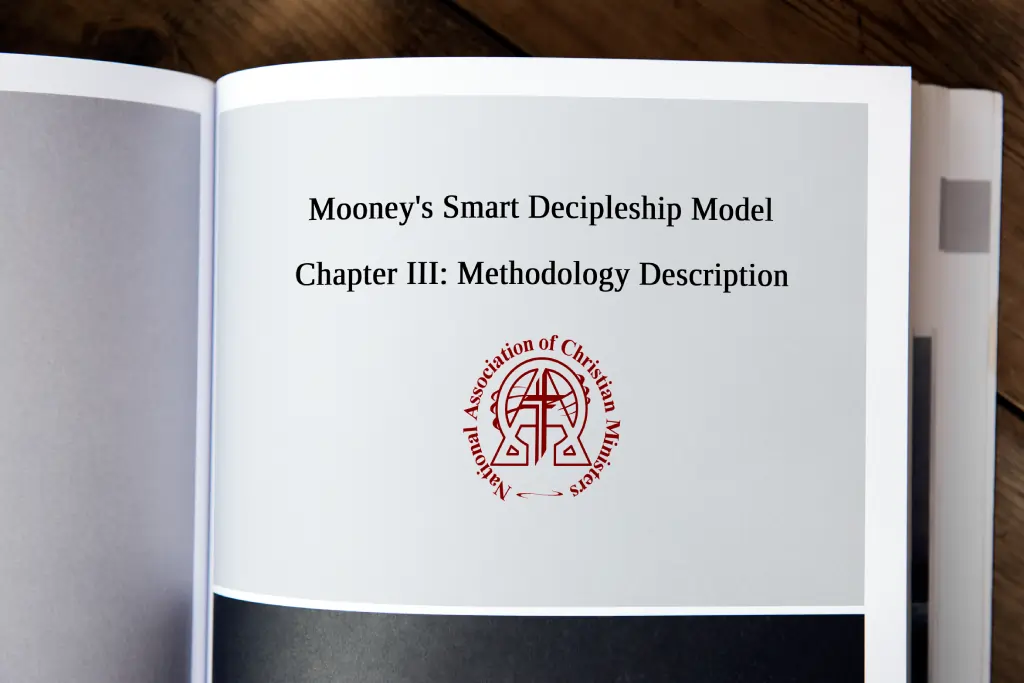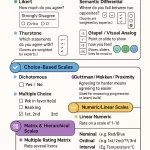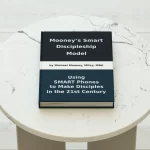
Chapter III: Methodology Description #
This section offers a clear description of the purpose of the proposed research. The problem sought to be resolved by the research is discussed, accompanied by the research question. The sample is described along with the
Purpose of Study #
The purpose of the proposed research seeks to determine if transformational leadership can be effectively applied to a worship-based model of discipleship delivered solely using online smartphone channels. Such might be evidence by meaningful discipleship relations which result in greater worship encounters than those produced by traditional face-to-face discipleship approaches.
By review of the literature in the previous chapter, it is established that transformational leadership has a rich history in research. It is also clear the transformational leadership is a moral approach to member influence, and consistent with the behaviors and teachings of Christ. For these reasons, it is not surprising that it is used as a method for leading Christian people. The application of this theory across virtual mediums has become a topic of contemporary study, but findings pertaining to this interest are still in infancy. The integration of transformational theory into a discipleship model focused on worship and tailored for delivery via smartphone technology is nonexistent in academic literature. In fact, no literature could be found relating transformational leadership to Christian worship. Lastly, no research seems to exist at present which involves transformational communication using text messages. Therefore, the following research question is posed:
Is there a difference between worship experiences of ministers before and after the ministers take an online course teaching worship discipleship modeled on transformational leadership?
Sample #
The sample will consist of ordained Christian ministers. Ministers are selected because the training is designed to prepare ministers for discipleship ministry. For participants to qualify for inclusion they must meet the following criteria: 1) Participants must be at least 18 years of age. 2) Participants must be convinced that God is a) calling them to ministry, and b) calling them to participate in the training. Ideally, they will be previously recognized for ministry with ordination or preparing for ordination at the time of participation. 3) Participants must have access to the Internet, as well as the necessary technology to interact (preferably a smartphone). 4) Participants must have a committed interest in their personal growth. 5) Participants must acknowledge in written form that they will be involved in the conducting of research and agree to participate.
Those meeting the above requirements will be considered for inclusion. However, those who fall under the following criteria will be excluded. 1) Candidates who show apprehension about using technology. 2) Candidates who are intolerant of Christian worship which is different from their traditions. 3) Candidates who do not already have a view of the value of worship. 4) Candidates who are dismissive of experiences and emotions as though they are trivial or irrelevant.
Recruitment #
Recruitment will be initiated as an invitation sent to participate in ministry related research. This invitation will be offered solely to the membership of a national ministerial association which holds members in excess of 16,000 ministers. No permission will need to be obtained because the author serves as the president of this organization. The invitation will be presented as an announcement on the announcement board of the virtual area of the fellowship. Additionally, a single email will be sent to every member inviting them to participate. Respondents will be directed to a Web form created by Wufoo where they will submit their interest in participation, along with answers to our qualifying questions.
Ethics #
Following the direction of the Code of Standards and Ethics for Market, Opinion, and Social Research, this research will cover three areas to ensure ethical responsibility. 1) Informed consent; 2) Confidentiality; 3) Anonymity. Informed consent will be covered in the process of selecting participants. Therein candidates will be given a description of the purpose of the research, the type of content to which they will be exposed, the length of time involved in participating, and any possible risks or benefits which could be experienced by participating. Additionally, it will be made clear that participants can stop participating at any time and are not obligated to complete assignments or questioners. Additionally, care will be given to keep all participant records confidential, and anonymity will be assured of all responses to surveys (CASRO, 2014).
Steps for Duplicable Procedure #
- Data will be gathered in the form of a closed-ended questioner utilizing a 5-point Likert scale.
- The scale will be administered pre and post intervention.
- The five points of the scale will be structured around agreeableness with individual statements as follows 1) Strongly disagree, 2) Disagree, 3) Neither agree or disagree, 4) Agree, 5) Strongly agree.
- The data will be collected using the services of Survey Monkey.
- An email will be sent to participants where they will be able to respond under the conditions of their general leisure (but within the time constraints of 7 days which will be disclosed in the survey email).
- The pre-intervention survey will be sent two weeks before the scheduled date to begin the intervention.
- The post intervention survey will be sent on the same day in which the intervention is completed.
Analysis #
A descriptive statistical approach will be used to interpret the ordinal data. Rather than using a mean, a central tendency approach will be used in calculating the frequency of selections –the mode. Then a distribution will be established for inferential analysis. A coloration of comparative scores will be considered using the Mann Whitney U test.
Click to Outcomes, Discussion, and Sources: Mooney’s Smart Discipleship Model #
7 of 8 #
Research Proposal for Master of Science in I/O Psychology:
National Association of Christian Ministers
Developed Under Supervision of Dr. L. Faibisch
9/19/2014








